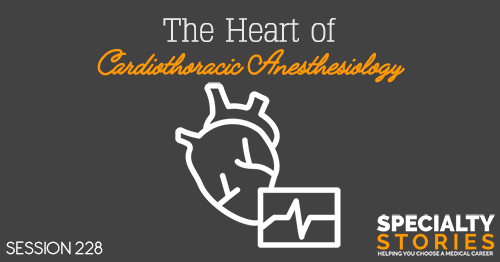Apple Podcasts | Google Podcasts
Session 217
Today, we chat with Dr. Alexander Kheradi, who is double boarded in Sports Medicine and Emergency Medicine. Alexander is affiliated with the Washington Capitals Hockey as a consultant, Gallaudet University as lead team physician, and The Washington Ballet as lead company physician.
We go into a conversation about how, as an emergency medicine physician, he ended up in sports medicine, and what potentially you could do if this is something that interests you. Learn more about this unique pathway in today’s episode.
For more podcast resources to help you with your medical school journey and beyond, check out Meded Media.
Listen to this podcast episode with the player above, or keep reading for the highlights and takeaway points.
[01:14] What Drove Him to Emergency Medicine
Alex has always been into sports and played soccer and lacrosse pretty heavily. When he got into emergency medicine, he was interested in sports but didn’t really understand what it entailed. And because he was in the Air Force, he didn’t have the opportunity to pursue it knowing a fellowship wasn’t really an option right after residency. And so, he did his time in the Air Force and thought about doing the fellowship afterward.
He learned how the fellowship covers not only athletes but also, everyday folks, whether it’s occupational or just be age-related. It covers sports but not all of it is a lot of musculoskeletal complaints. Part of their training is developing proficiency in musculoskeletal ultrasound.
'Emergency medicine lends itself to finding a niche.'Click To TweetAlex thinks the sports medicine aspect was an awesome way to incorporate things that he was really interested in his career.
He was an attending for four years and then went back and did a fellowship. And he thinks it allowed him to appreciate the fellowship a little bit more and take it very seriously. It’s not just another stepping stone to something else, but something important for the longevity of his career.
[06:53] The Biggest Myths or Misconceptions Around Sports Medicine
A lot of people think that being a sports medicine doc looks sexy as you’re always on the sidelines. But that’s not always the case. In fact, Alex reckons that 99% of his time is spent waiting around. It’s great though since it means people aren’t getting hurt.
[08:26] Traits that Lead to Becoming a Good Sports Medicine Doctor
Alex says that patience is key. You’ve got to learn how to compromise because a lot of these athletes want to get back on the field.
Having been active in sports, he understands the angst that comes with sitting out not being on the field, or participating. And so, you get to understand how they can get so stressed. But then you have to weigh that with the fact that they’re injured, and you don’t want them to get back in the game before they’re healed.
Alex explains it’s important to make them understand the importance of taking a step back. Sure, they want to get back into it but it’s also an investment. And so, you have to be able to explain to them that if they put the time in now, they’re going to get back better than they were. Otherwise, it could cause more serious injury. Hence, you’ve got to work with them and be patient. Understand where they’re coming from.
[12:50] Typical Day and Taking Calls
Alex’s Emergency Medicine shifts run from 7 am to 4 pm or 5:30 pm, to 2:30 am, or overnights from 11 pm to 7 am. Then he goes home, gets some sleep for a couple of hours, and hangs out with his kids.
He would get on a call with The Washington Ballet to talk about their injuries. He goes over there and later in the evening, be at the Capitals’ game. Then he could get a call from the fellows at Gallaudet University for athletes having issues. On Thursday mornings and afternoons, he does his sports clinic.
'It can be a little tough balancing but it's fun being busy. I really don't see any other way of doing it.'Click To TweetAlex adds that if you’re employed by a team, a company, or a university, you are expected to be available. He doesn’t think it’s necessarily a call but you need to be available. There aren’t a whole lot of emergencies, but not everything’s musculoskeletal.
For instance, if an athlete experiences pain, they’re going to call the athletic trainers first, then they will call the sports medicine doc. So you might get a call at two in the morning and your job is to help facilitate things.
For the most part, athletic trainers and PTs that work with teams are incredibly understanding of the situations with great medical knowledge. And so, they serve as the gatekeepers. You’re ultimately responsible but not everything is going to go right to you as the doc.
[17:17] The Training Path
Alex clarifies that they are primary care sports medicine. They are not surgical and they do lots of interventions. But the fellowship is only available to emergency medicine. The bulk of primary care sports medicine physicians is from Family Medicine. Other pathways would be PM&R, Internal Medicine, and Pediatrics. But the majority is Family Medicine.
Alex believes that each specialty brings its own strengths. As an emergency medicine physician, he brings the ability to act on the fly, especially from a sideline standpoint.
'As an emergency medicine doc, we're definitely that jack of all trades.'Click To TweetAs sports and emergency medicine doctors, they also love doing procedures, whether it’s tapping a knee or injecting a knee. They’re very comfortable with ultrasound as well and they don’t do anything with the spine.
[20:31] Negative Bias Towards DOs
'The primary care sports med world is very DO-heavy.'Click To TweetAlex believes that whether you’re an MD or DO, you have to work hard and be deserving of the seat at the table.
[21:29] Opportunities Outside of Clinical Medicine
Alex says there’s a lot of networking involved to get those opportunities to work with the different teams. Sometimes it’s who you know, but for the most part, if you’re a good, caring physician and personable, you have no problem getting a position working with a team or a company.
[23:04] What He Wished He Knew
From the musculoskeletal standpoint, Alex thinks he probably would have studied his anatomy a little bit harder because he had to relearn everything. As an ED Doc, you know the basics, orthopedic stuff. But when you become a Sports Med doc, it’s very topographic. You’ve got to understand the nuances, the insertion, the origins, the activation, and things of that nature.
[24:27] Most and Least Liked Things
Alex likes seeing people get better and he gets different kinds of rewards from ED and Sports Med.
He always says to patients is that his goal is to take a patient in a sports medicine world as far as he can, before they need surgery, at least from a musculoskeletal standpoint. And so sometimes, when he refers them to the surgeon, it bothers him a little bit. But as long as he did everything right, then that’s fine.
[26:46] When the Athletes Want an Aggressive Approach
Every patient is different and the goal of that patient is to play. And if that’s the fastest way to get back on that field, then they’re going to do it. When those discussions with the athlete, they always look at the cost-benefit. And so, they have to have an honest decision.
[28:30] Major Changes Coming to the Field
Alex thinks Ultrasound prevalence is incredible. He was at Temple University and they were handing out every student in their incoming class a Butterfly ultrasound. From a musculoskeletal standpoint, you can show that individual real-time what’s going on. And sometimes, that’s all they need to know.
He also adds that musculoskeletal ultrasound, compared to point of care, looks very different. But his exposure as an ED doc to ultrasound on a day-to-day basis made the transition to the musculoskeletal ultrasound easier. And you will see sports med docs getting better and better at this.
[31:06] Final Words of Wisdom
If he had to do it all over again, Alex says he would still have chosen the same specialty.
Finally, he encourages students who may be interested in this specialty to have an open mind. Look into a lot of different specialties. Don’t be closed off. But if this ends up being what you’re passionate about, get a mentor, somebody that’s in the field. Ask them how they got to where they’re at, what they did right, and what they did wrong. Use them as a tool because the mentor-mentee relationship is extremely important.
Finally, be ready because somebody, later on, is going to ask you to do the same thing for them, which is great. And that’s the beauty of medicine since you can pass it on.
Links:
SEARCH SITE
LISTEN FOR FREE












